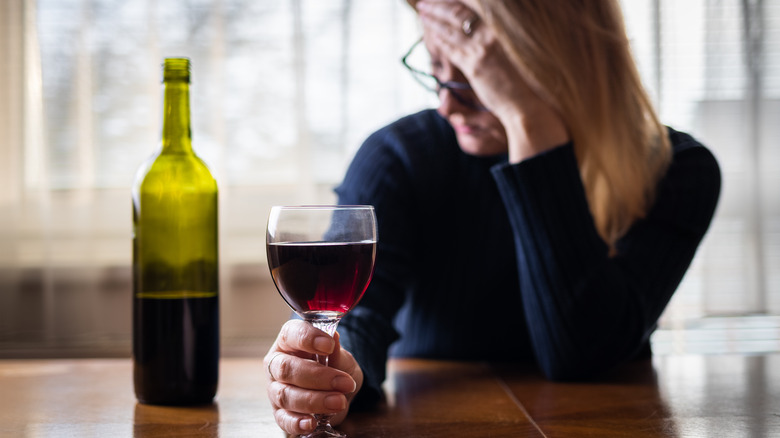Ark Behavioral Health Addiction Specialist On How California Sobriety Can Be Dangerous - Exclusive
Many people became acquainted with the term "California sober" through singer Demi Lovato, who explained in 2021 about their addiction recovery, "I think the term that I best identify with is California sober" (via CBS News). They added, "I really don't feel comfortable explaining the parameters of my recovery to people, because I don't want anyone to look at my parameters of safety and think that's what works for them, because it might not."
It's worth noting that late last year, Lovato took to their Instagram Story to disclose that they were committed to being 100% sober. But the introduction of California sobriety into mainstream culture is worth taking another look at given its controversial nature. What exactly is it — and can following a qualified kind of sobriety like this be dangerous?
To get our questions answered, Health Digest turned to Dr. Manish Mishra, Medical Reviewer for Ark Behavioral Health. In our exclusive interview, he also explained why the United States saw an uptick in addiction during the pandemic. But he also explained the concept of being California sober and its potential dangers.
Alcohol and marijuana can be gateway drugs
Dr. Manish Mishra is the Chief Medical Officer of the Texas Healthcare and Diagnostic Center. "In my role as Medical Reviewer for Ark Behavioral Health, I work to provide accurate, authoritative information to those seeking help for substance abuse and behavioral health issues," he explained.
Dr. Mishra has certainly come across the term "California sober" and shared more about what this means with Health Digest. "California sober is a more recent movement that involves abstaining from all substances except for marijuana and/or alcohol," he said, adding, "Sober, however, refers to avoiding all substances, including alcohol and marijuana."
As he explained, those who aim to maintain a California sober approach to addiction believe that marijuana and alcohol are not as harmful as harder drugs and that moderation is okay. "However, this isn't always the case," he said. "Not only can both marijuana and alcohol create their own sets of health and addiction risks, but they can act as gateway substances back into drug use."
Drug use often masks other problems
Although California sobriety may work for some, as Dr. Manish Mishra said, "Making exceptions for certain drugs can become a very slippery slope. If you've struggled with substance abuse, California sober can sound appealing, but replacing one mind-altering drug with another won't help a person to remain sober and find long-term recovery."
He explained that for many people who turn to marijuana or alcohol "in this way," there may be other conditions like mental illness or substance use disorders behind the behavior. "With emotions running high and a lack of healthy coping strategies, instead of exploring options such as therapy and professional treatment, people embracing the California sober movement may push these legitimate issues down in search of temporary relief," he said.
Ultimately, as it seems Demi Lovato has found in their case, according to Dr. Mishra, "The only way to achieve sobriety is to embrace full sobriety and uncover the root causes of the addiction."
If you're ready to start the path to healing and sobriety, help is available to you and your loved one. You can learn more about substance abuse, treatment, and recovery by exploring the extensive resources provided by Ark Behavioral Health addiction treatment specialists.



